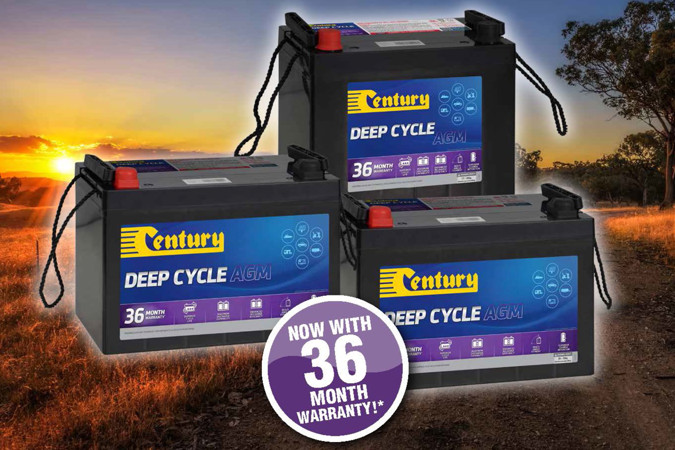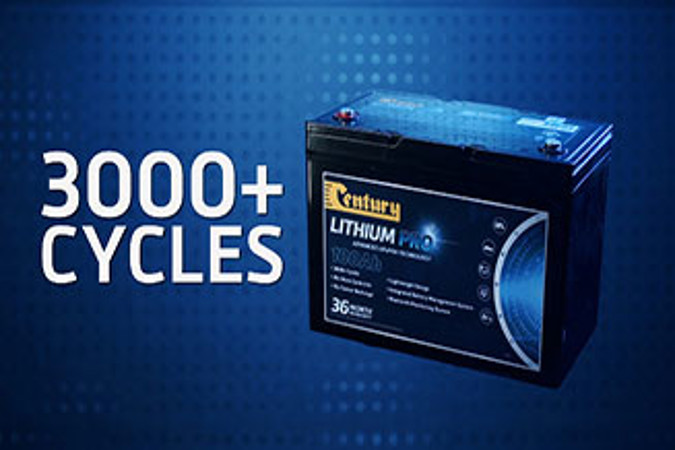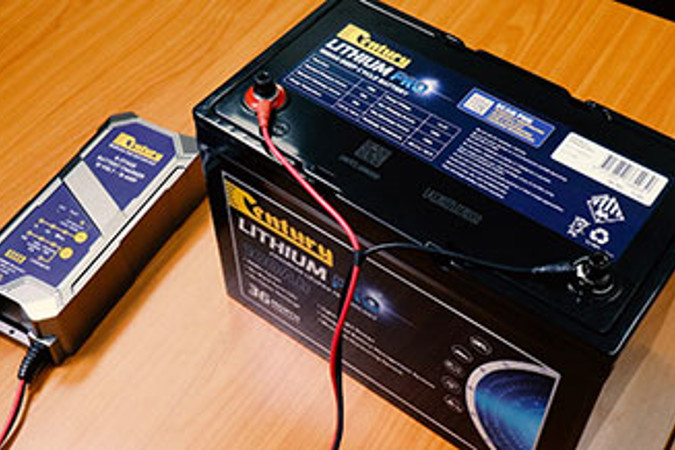Marine batteries
The conditions that marine batteries have to deal with are much harsher than for a car. While a road-going vehicle basically moves in two dimensions, a water-borne one has to contend with the big vertical forces and shock generated by waves.
This means that marine batteries must be more durable to resist fatigue cracking in the outer casing, and the internal components. Using a car battery in place of a marine-rated one runs the risk of changing the distance between the active materials, faster internal corrosion, electrolyte spills and the worst outcome of all - battery failure.
The size of the battery you get depends on the electrical load you’re potentially going to have to hit it with. Every battery in the Century Marine Pro range carries a “horsepower” rating that reflects how much cranking amps it can churn out, and “semi-cycling” – its ability to run electrical equipment.
For example, the Marine Pro 580 is best suited for boats with engines up to 70hp as long as you’re running no additional electrics, while a Marine Pro 680 has enough power in reserve to crank a 150hp engine and run basic electronics such as instruments, navigation lights, a bilge pump and a radio.
Even the highest-rated batteries, the Marine Pro 780, 1000 and Cruiser units - made for 350hp-plus engines - can only run limited electronics including a GPS chartplotter, a fish finder, autopilot, trim tabs or a fridge.
For anything else, that’s where a Deep Cycle secondary battery steps in.
Deep Cycle batteries
These are the tortoises of the battery world, designed to trickle out their power reserves at a slow and steady rate over a long period of time, compared with the marine battery’s rabbit-like explosion of cranking power.
The term “Deep Cycle” refers to the conditions the battery is designed to operate under, involving a long, steady draw that deeply discharges most of its power. They’re optimised for “cycling”, or in this instance, regular and repeated draining and recharging.
The size of a deep-cycle battery is largely dependent on the amount of electrical load you’re likely to place on it, as well as a 50 percent “depth of discharge” buffer that builds in a damage-minimising safety net. This calculation can be complicated, or you can use our handy calculator below to determine which battery (or batteries) you will need.

Deep Cycle Battery Calculator
Find the right Deep Cycle battery for powering your accessories

If you’re going to be running onboard electronics, then a combination of a high cranking marine starting battery and a slow release Deep Cycle unit will ensure plenty of outboard-starting muscle and reserve capacity to run on-board electrics.
The best way to do this is to use a continuous duty solenoid that will allow electricity to flow across both the marine battery used to crank the engine and the deep-cycle battery, but will stop power flowing from the Deep Cycle battery to the marine one. This way, the marine battery remains isolated from the Deep-cycle battery, and won’t ever draw on its energy reserves.
This also allows you to power your electrics and devices from the Deep Cycle battery, whilst keeping your Marine starting battery safely isolated and ready to start the engine when you’re ready to head home.
Boaties getting stranded due to a flat battery is one of the most common problems faced by the Coast Guard here in Australia - and it’s a lot different to being stranded on land. So when it comes to batteries and the power you need, it is important to always check your battery before heading out and make sure you have the right batteries for your boat and your power requirements.
If you’re unsure about which Century Marine Pro battery is best for your boat, or whether you need a dedicated Deep Cycle battery for your accessories, call 13 22 87 to talk to your local expert.
 Homepage
Homepage
 Homepage
Homepage


